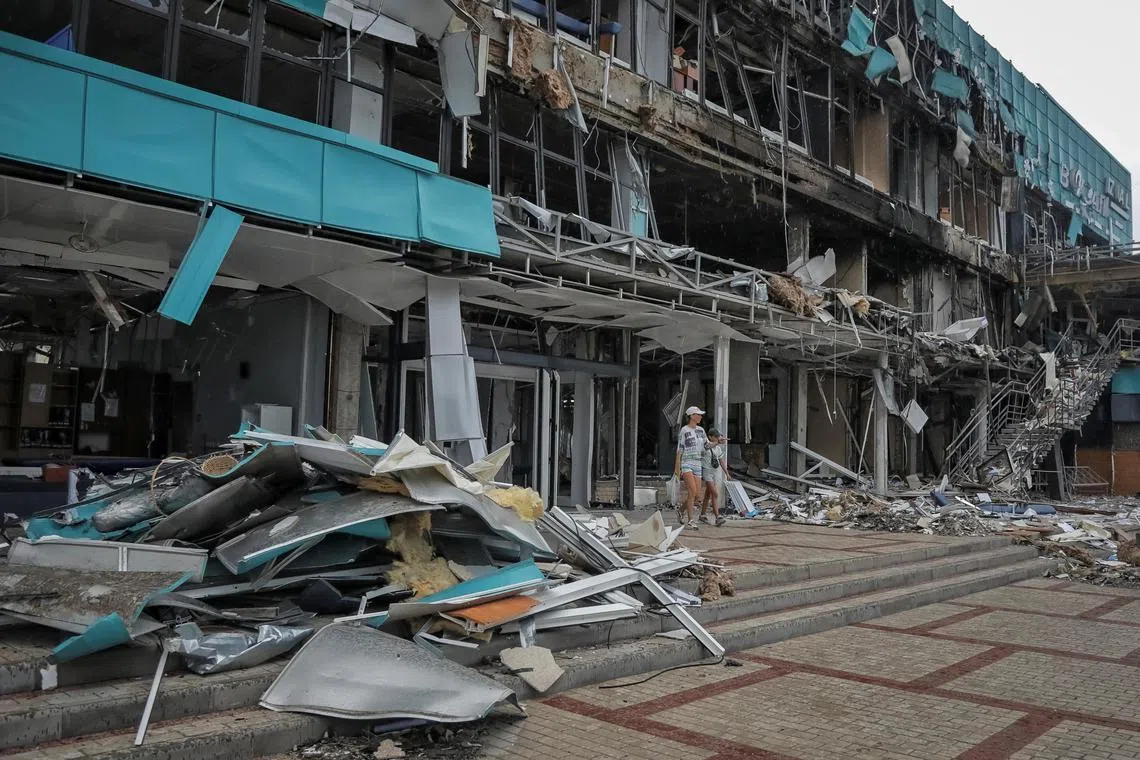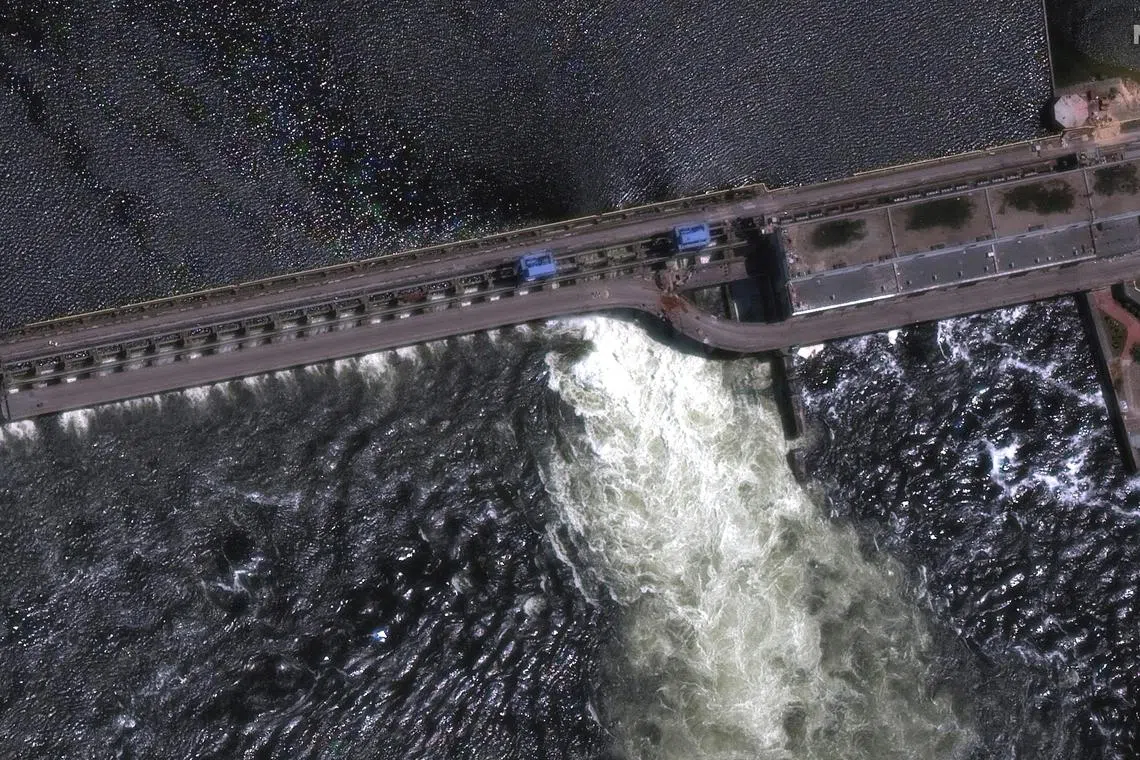Ukraine war: When do attacks on civilian installations amount to war crimes?
Sign up now: Get ST's newsletters delivered to your inbox

A marine station building destroyed during a Russian drone strike, amid Russia's attack on Ukraine, in Izmail, Odesa region, on Aug 2.
PHOTO: REUTERS
THE HAGUE – Russian air strikes this week hit silos and shipping terminals for Ukrainian grain, potentially violating international law, which forbids attacks on resources essential to the civilian population.
Drone attacks wrecked buildings in the Port of Izmail and prevented ships on the Danube River from loading grain for export. Around 100,000 tonnes have been destroyed, by Kyiv’s accounts.
Ukraine’s prosecutors and the International Criminal Court (ICC) in The Hague were already investigating possible war crimes in the shape of a winter campaign of air strikes on Ukrainian energy and utilities infrastructure, as well as the attack on the Nova Kakhovka hydroelectric dam in the southern Kherson region.
The 1949 Geneva Conventions on humanitarian conduct in war and their protocols prohibit attacks on sites considered essential for civilians: “In no event shall actions against these objects be taken which may be expected to leave the civilian population with such inadequate food or water as to cause its starvation or force its movement.”
They explicitly prohibit attacks on “objects indispensable to the survival of the civilian population, such as foodstuffs, agricultural areas for the production of foodstuffs, crops, livestock, drinking water installations and supplies and irrigation works...”.
Russia has conducted more than 100 attacks on Ukraine’s grain and port infrastructure since its full-scale invasion of Ukraine in February 2022,
Senior lawyer Yousuf Syed Khan at the international humanitarian law firm Global Rights Compliance, which is working with Ukraine to document war crimes, said: “The... intent to starve civilians as a method of warfare is quite clear here, and the starvation of civilians as a method of warfare qualifies as a war crime...
“The civilian population affected includes not only Ukrainians but also civilians who would benefit from the exports, including those in African states.”
The Geneva Conventions and additional protocols say that parties involved in military conflict must distinguish between “civilian objects and military objectives”, and that attacks on civilian objects are forbidden.
This prohibition is also codified in the Rome Statute of the ICC, which opened an investigation into possible war crimes in Ukraine soon after the invasion.
Russian state news agency RIA said on Wednesday, without providing evidence, that the port and grain facilities attacked had housed foreign mercenaries and military hardware.
The conventions say some infrastructure owned and used by civilians can count as a military objective, but only “objects which by their nature, location, purpose or use make an effective contribution to military action”, and whose destruction or capture “offers a definite military advantage”.
Even if some targets could be considered military objectives, that is not the end of the story, says Dr Katharine Fortin, associate professor of international law at Utrecht University.
The military must consider whether the damage and loss incurred by civilians in such attacks are excessive compared with the concrete and direct military advantage, she said.

The Nova Kakhovka Dam pictured in Kherson region.
PHOTO: REUTERS
If a dam such as the one at Nova Kakhovka could be seen as a military objective, incidental civilian deaths or damage could still be legally classed as disproportionate.
Protocols to the conventions from 1977 specifically say installations such as dams should not be attacked even if they are legitimate military objectives, “if such attack may cause the release of dangerous forces and consequent severe losses among the civilian population”.
The 1998 founding statute of the ICC makes it a crime to intentionally launch an attack “in the knowledge that such attack will cause incidental loss of life or injury to civilians or damage to civilian objects or widespread, long-term and severe damage to the natural environment which would be clearly excessive in relation to the concrete and direct overall military advantage anticipated”.
Russia accused Ukraine itself of destroying the dam on June 6 and releasing up to 18 cubic km of water held behind it, an allegation that Kyiv dismissed out of hand.
Civilian power infrastructure has long been considered a valid military objective as long as it also supports an enemy army’s activities, military law expert Michael Schmitt wrote in the Articles of War blog run by the Lieber Institute at the United States West Point military academy.
International law professor Marko Milanovic of the University of Reading wrote in a blog that the main issue in assessing the military validity of the attack on the Nova Kakhovka dam’s hydroelectric power station was whether it was making an “effective contribution” to military action. REUTERS


